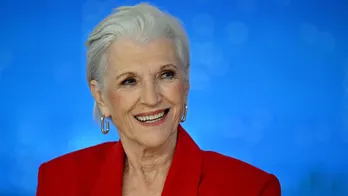Deciding when it's time to end therapy
Watch this video for tips on ending therapy — including reasons why, ways to bring it up — and how to find a new therapist if necessary.
Many people start seeing a therapist with no end date in mind. So how do you know when it's time to end therapy? It's a tough question. "I have friends who are therapists who talk to me about should they leave their therapist," says Moraya Seeger DeGeare, a licensed marriage and family therapist and the in-house relationship expert for Paired, an app for couples.
Part of the reason it might be hard to call it quits is that therapy is "incredibly intimate," says Seeger DeGeare. "Most of us tell our therapist something that we don't tell anyone else."
She says that humans are "wired for connection and belonging," and choosing to end a significant connection — even if it's not serving us — is difficult and brave. Seeger DeGeare says therapy should feel like a coffee date with a friend where you get into deep conversation. "You should feel so in alignment with your therapist in some of those great sessions."
If it's never like that, it might be time to end things. Or maybe even if it is like that, you've seen so much progress that you're ready to take a break.
Here are a few reasons why Seeger Degeare says you might consider breaking up with your therapist:
Positive reasons you might end therapy
These are the best-case scenario. You and your therapist have had a great relationship, but it's time to move on.
- You've seen consistent growth and progress to the point of not having much to talk about in sessions
- You feel like you've accomplished what you came to therapy for
- You feel like you've developed the tools you need to cope
Negative, but confusing reasons you might end therapy
These are situations where you may not feel actively harmed by your therapist, they may even be helpful in certain aspects, but you wonder if you might be able to find a better fit.
- You never really clicked with your therapist
- You're unhappy with your progress
- You feel dismissed
- Your therapist doesn't understand important aspects of your identity
- You don't feel comfortable discussing sensitive topics
Worst-case scenario reasons you need to end therapy*:
These are some reasons you need to end the relationship because it's causing harm.
- Your therapist hits on you
- Your therapist harasses you
- Your therapist harms you physically or emotionally
- Your therapist breaks confidentiality
*If your therapist has done something unethical that puts you at risk, for instance, they sexually harassed you, Seeger DeGeare recommends that you report them to their state licensing board and not contact them again.
Whatever your reason for moving on, actually communicating that you're ready to end therapy can be hard. For tips on how to have the conversation, including a role-play where therapist Moraya Seeger DeGeare and Life Kit host Marielle Segarra demo two conversations between a therapist and a patient, watch the video at the top of the page or on YouTube or listen to the podcast episode on Apple Podcasts and Spotify.
This video was hosted by Marielle Segarra and directed by Iman Young; produced by Iman Young, Clare Marie Schneider and Beck Harlan; edited by Iman Young; filmed by Iman Young, Christina Shaman and Nickolai Hammar and animated by Kaz Fantone. Audio engineering support comes from Neal Rauch. Supervising editors are Meghan Keane and Nick Michael.
The audio portion of this episode was produced by Clare Marie Schneider. The story was adapted for digital by Beck Harlan and edited by Meghan Keane.
Listen to Life Kit on Apple Podcasts and Spotify, or sign up for our newsletter.
Disclaimer: The copyright of this article belongs to the original author. Reposting this article is solely for the purpose of information dissemination and does not constitute any investment advice. If there is any infringement, please contact us immediately. We will make corrections or deletions as necessary. Thank you.







